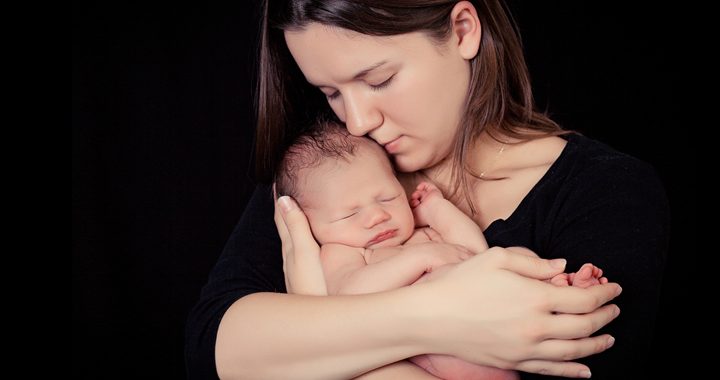
ANTIDEPRESSANT USE LINKED TO POSTPARTUM HEMORRHAGE
How serious an issue is this? The conclusion of this study makes it quite clear: “In an accompanying editorial, Eibert Heerdink, PhD, associate professor of clinical pharmacoepidemiology at the Utrecht Institute for Pharmaceutical Science in the Netherlands, described the study as “especially well-designed” and echoed the investigators’ observation that although the absolute increase in risk is small, it is cause for concern.
“With reported incidences of 2.1 to 8% of all births, Dr. Heerdink notes that postpartum hemorrhage is not an uncommon complication of childbirth and is a leading cause of maternal mortality and morbidity.
“He points out that “even a modest increase of a relatively high baseline risk may have a considerable impact on public health. Pregnant women and their healthcare providers should be aware of the possible risk associate with the use of antidepressants shortly before delivery.”
The SSRI and SNRI antidepressants not only put babies at risk for serious and potentially fatal birth defects, but also endanger the mother’s life as well. Please take heed. Patients as well as physicians need to be warned. See the article below with links to the full study.
Ann Blake Tracy, Executive Director,
International Coalition for Drug Awareness
www.drugawareness.org & http://ssristories.drugawareness.org
Author: *”Prozac: Panacea or Pandora? – Our Serotonin Nightmare – The Complete Truth of the Full Impact of Antidepressants Upon Us & Our World” & Withdrawal CD “Help! I Can’t Get Off My Antidepressant!”
Antidepressant use by pregnant women around the time of delivery is linked to an increased risk for postpartum hemorrhage, new research shows.
A large study of pregnant women diagnosed with a mood or anxiety disorder and conducted by investigators at Harvard School of Public Health in Boston showed about a1.5-fold increased risk for postpartum hemorrhage associated with all classes of antidepressants and not just selective serotonin reuptake inhibitors (SRIs).
“Our study suggests that all classes of antidepressants are associated with an increased risk of abnormal bleeding,” the investigators write.
“This study is the first to report an association between exposure to antidepressants at the time of delivery and risk of postpartum hemorrhage in a US population and in a population with a diagnosis of depression,” they add.
With first author Kristin Palmsten, the study was published online August 21 in the BMJ.
A Leading Cause of Maternal Mortality, Morbidity
A leading cause of maternal mortality in the United States, postpartum hemorrhage is also a leading contributor of severe maternal morbidity, blood transfusion, and intensive care admissions.
Some studies have shown a link between bleeding risk — including gastrointestinal bleeding and perioperative bleeding — and antidepressants that inhibit serotonin reuptake.
However, to date, there have been 2 studies — one in Canada and the other in Sweden — that have examined the association between antidepressants and postpartum hemorrhage.
Although these studies raise concerns, the investigators note they had “limitations including potential confounding by mood disorders or factors associated with them, exposure windows that did not focus on delivery, and limited power to assess specific antidepressants.”
To assess the link between exposure to antidepressants at or around the time of delivery and postpartum hemorrhage, the researchers used nationwide Medicaid data.
The study included 106,000 pregnant women aged 12 to 55 years with a diagnosis of mood or anxiety disorder. Women were categorized into 4 exposure groups according to pharmacy dispensing data:
Current exposure: Women with a supply of antidepressants that overlapped with the delivery date
Recent exposure: Women with a supply of antidepressants on at least 1 day in the month before the delivery date but not on the delivery date
Past exposure: Women with a supply of antidepressants ending between 5 and 1 months before delivery
Unexposed: Women who had no supply of antidepressants in the 5 months before delivery, who served as the reference group
SRIs are believed to increase bleeding risk by depleting platelet serotonin. For the study, the investigators classified antidepressants with serotonin transporter Kd 0-9.9 nM as SRIs; those with Kd = 10 nM were classified as non-SRIs. The analysis included only women on antidepressant monotherapy.
The study’s main outcome measures included risk for postpartum hemorrhage by timing of exposure and by SRI or non-SRI, classes of antidepressant, and antidepressant types.
Be Aware of the Risk
The results revealed there were 12,710 women (12%) with current exposure to SRI monotherapy and 1495 women (1.4%) with current exposure to non-SRI monotherapy.
For women with mood/anxiety disorders but no exposure to antidepressants, the risk for postpartum hemorrhage was 2.8%; for current users of SRIs, 4.0%; for current users of non-SRIs, 3.8%; for past users of SRIs, 2.5%; and for past users of non-SRIs, 3.4%.
Compared with the reference group, women with current exposure to SRI monotherapy had a 1.47-fold (95% confidence interval [CI], 1.33 – 1.62) increased risk for postpartum hemorrhage. Current use of non-SRI monotherapy was associated with a 1.39-fold increased risk (95% CI, 1.07 – 1.81).
“In this population of pregnant women, use of serotonin or non-serotonin reuptake inhibitors at the time of delivery was associated with about a 1.4 to 1.5-fold increase in risk of postpartum hemorrhage and 1.0% to 1.3% excess risk,” the investigators write.
They add that any exposure to antidepressants in the month before delivery was associated with about a 1.2-fold increased risk for postpartum hemorrhage.
Further, exposure to SRIs 1 to 5 months before delivery was not associated with postpartum hemorrhage; exposure to non-SRIs during that timeframe was associated with a nearly significant increased risk.
The increased risk for postpartum depression associated with non-SRIs was surprising and requires further study, the researchers note.
“The absolute increase in risk associated with antidepressant exposure in the month before delivery is small, but women and their physicians should be aware of the potential risks when making treatment decisions near the end of pregnancy,” the investigators write.
Cause for Concern
In an accompanying editorial, Eibert Heerdink, PhD, associate professor of clinical pharmacoepidemiology at the Utrecht Institute for Pharmaceutical Science in the Netherlands, described the study as “especially well-designed” and echoed the investigators’ observation that although the absolute increase in risk is small, it is cause for concern.
With reported incidences of 2.1 to 8% of all births, Dr. Heerdink notes that postpartum hemorrhage is not an uncommon complication of childbirth and is a leading cause of maternal mortality and morbidity.
He points out that “even a modest increase of a relatively high baseline risk may have a considerable impact on public health. Pregnant women and their healthcare providers should be aware of the possible risk associate with the use of antidepressants shortly before delivery.”
The authors and Dr. Heerdink report no relevant financial relationships.
http://www.medscape.com/viewarticle/810014
BMJ. Published online August 21, 2013. Full article: http://www.bmj.com/content/347/bmj.f4877.pdf%2Bhtml , Editorial: http://www.bmj.com/content/347/bmj.f5194





